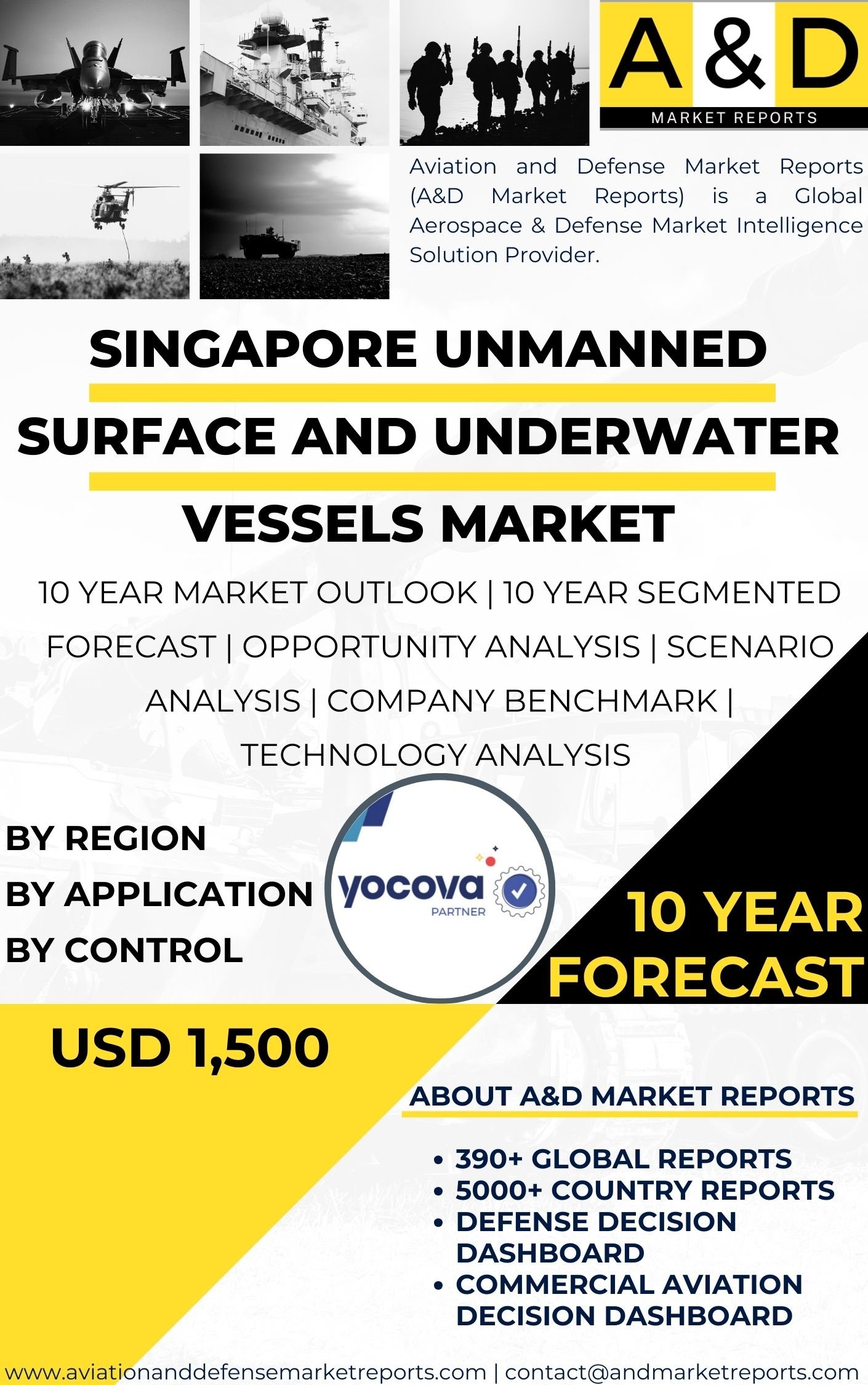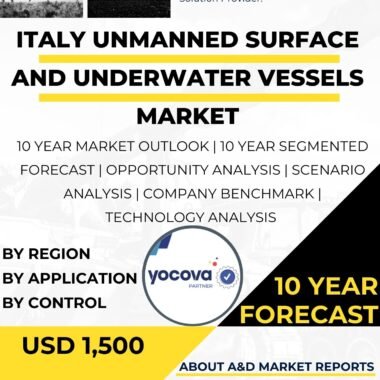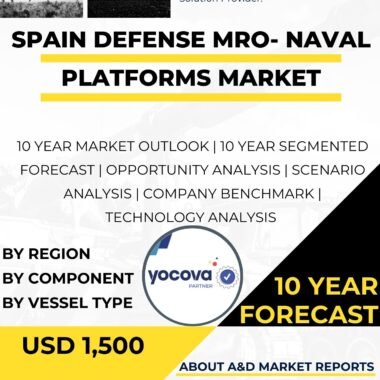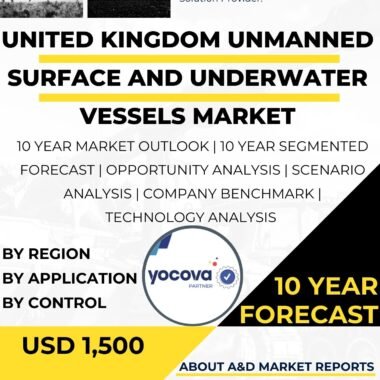Description
Singapore Unmanned Surface and Underwater Vessels Market has experienced substantial growth in recent years, driven by the nation’s commitment to enhancing maritime security, marine research capabilities, and offshore industries.
Unmanned surface vessels (USVs) and unmanned underwater vehicles (UUVs) are autonomous or remotely operated systems designed to perform missions without onboard crews. These platforms serve a wide range of applications, including defense, maritime surveillance, scientific exploration, and offshore industrial operations.
This article examines the market’s key drivers, major participants, applications, challenges, and future prospects.
Singapore Unmanned Surface and Underwater Vessels Market Strategic Importance and Defense Applications
Singapore’s strategic maritime location as one of the world’s busiest trading hubs underscores the need for robust maritime security. As an island nation heavily reliant on sea-based trade and energy routes, Singapore faces complex challenges in protecting its territorial waters and maritime infrastructure.
The government’s investment in unmanned surface and underwater vessel technology is essential for enhancing situational awareness, surveillance, and naval readiness. These systems enable persistent monitoring of sea lanes, early threat detection, and efficient response to maritime incidents without exposing personnel to high-risk environments.
Singapore Unmanned Surface and Underwater Vessels Market Growth Driven by Marine Research and Exploration
In addition to defense applications, the demand for USVs and UUVs in Singapore has been bolstered by the expansion of marine research and environmental monitoring.
Singapore’s commitment to ocean conservation, climate resilience, and marine resource management has led to greater deployment of unmanned underwater vehicles for data collection, seabed mapping, and ecosystem assessment.
These systems allow scientists to operate in deep or hazardous environments where manned missions are impractical, improving research accuracy and contributing to national sustainability goals.
Singapore Unmanned Surface and Underwater Vessels Market Expanding Role in Offshore and Industrial Operations
Singapore’s offshore energy and maritime engineering sectors are also major contributors to market growth. Unmanned vessels are now widely utilized in oil and gas exploration, renewable energy projects, and subsea construction.
USVs and UUVs perform inspection, maintenance, and surveillance of offshore installations, pipelines, and wind farms—enhancing operational safety and reducing reliance on crewed missions.
Their ability to operate continuously and autonomously improves efficiency in high-demand sectors critical to Singapore’s economic and energy security.
Key Industry Players and Collaboration Initiatives
The Singapore market hosts several international unmanned systems companies offering advanced surface and underwater platforms—from small remotely operated vehicles (ROVs) to large autonomous maritime systems. Collaborations with global defense and technology leaders provide Singapore with access to cutting-edge design expertise and proven operational systems.
Meanwhile, Singapore’s domestic marine technology industry has grown rapidly. Local firms are engaged in R&D, system integration, and production of maritime sensors, communication systems, and AI-driven control software. These initiatives enhance the country’s technological self-reliance and strengthen its position as a regional innovation hub for autonomous maritime systems.
Diverse Applications Across Civil and Defense Domains
Unmanned surface and underwater vessels serve multiple functions in Singapore’s maritime ecosystem, including:
Maritime Surveillance and Security: USVs equipped with advanced sensors and cameras conduct continuous patrols, vessel tracking, and threat detection within Singapore’s territorial waters.
Marine Research and Environmental Monitoring: UUVs support data collection for oceanographic studies, coral reef assessment, and pollution monitoring.
Offshore Industrial Operations: Both USVs and UUVs are used for inspection, maintenance, and repair of offshore energy infrastructure and subsea facilities.
Environmental and Emergency Response: Unmanned vessels can detect oil spills, assess maritime accidents, and monitor water quality, contributing to rapid and sustainable crisis management.
Market Challenges and Operational Considerations
Despite rapid advancements, the market faces several challenges.
The integration of unmanned vessels with existing maritime infrastructure and commercial shipping routes remains complex, requiring coordination between regulatory authorities and operators. Compliance with international maritime regulations is essential to ensure safe navigation in shared waters.
Furthermore, communication reliability and autonomy are critical technical challenges. Maintaining stable control links and data transmission in demanding sea conditions is vital to the success of remote and autonomous missions. Continuous innovation in AI navigation, sensor fusion, and secure communication protocols is required to overcome these barriers.
Future Prospects and Technological Advancements
Looking forward, the future of Singapore’s unmanned surface and underwater vessels market appears highly promising.
The nation’s focus on maritime security, ocean research, and offshore innovation will continue to drive demand for next-generation unmanned systems. Collaboration with international partners, coupled with domestic technological advancements, will further accelerate industry growth.
Emerging trends such as enhanced autonomy, AI-driven navigation, real-time data analytics, and improved sensor integration will expand the capabilities and versatility of USVs and UUVs—enabling them to undertake increasingly complex missions with greater efficiency and reliability.
Conclusion
In conclusion, Singapore’s unmanned surface and underwater vessels market has become a cornerstone of the nation’s maritime strategy—supporting defense readiness, marine science, and offshore industry growth.
USVs and UUVs are transforming how maritime operations are conducted, providing safer, faster, and more efficient alternatives to manned missions.
While challenges related to integration, communication, and regulatory frameworks persist, Singapore’s continued investment in innovation and international collaboration ensures that its unmanned maritime sector remains on a strong trajectory of growth and technological leadership.




